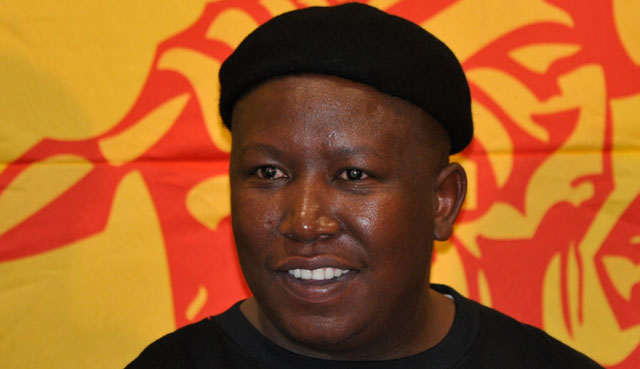
Julius Malema’s Economic Freedom Fighters will use “existing capacity” to provide “high-speed and quality broadband to all schools and all institutions of higher learning in South Africa”, the party’s newly released manifesto says.
The EFF, which intends contesting the general election on 7 May, sees a controlling role for the state, including ensuring that it has “total and majority control” in state-owned enterprises, including Telkom. Telkom is currently 40% held by the state after being partially privatised and then floated on the JSE 10 years ago.
In its manifesto, the party says it will invest heavily in research and development and in subsidising “technological and scientific innovations and discoveries”.
It says, too, that these subsidies will lead to the development and manufacturing of a South African car, computer, tablet, phone and “other means of world-class technological innovations”.
“The EFF government will build a specified technology university or institute whose primary focus will be technology innovation.”
On how it will manage state-owned enterprises, including Telkom, the EFF says that if it is elected to national office, it will “democratise” them, instituting a model of “greater worker ownership and control of the enterprises, instead of the boards that currently run [them] in a similar way private companies are run”.
It says it will prescribe clear and concrete developmental mandates and objectives to all state-owned enterprises, which will be gauged by their ability to deliver quality services, the number of jobs they create and the speed at which they expand the “qualitative and quantitative capacity” to provide better services.
“The EFF government will ensure that all state-owned enterprises will be given a concrete mandate on the number of jobs they should create annually,” the manifesto says. “The EFF government will ensure that all state-owned enterprises will be given a concrete mandate on the numbers of students they should train every year.”
The party says it will “engage in radical redirection” of tax receipts to “prioritise services that will alleviate poverty, reduce inequalities and prepare South African citizens for a better future”.
It plans to increase taxes on private companies to run a R2 trillion budget by 2017 (from R1 trillion now). “Corporate and company taxes should amount to not less than 40% of the tax revenue, while all other taxes, including VAT are retained at the same levels they are at currently.”
The EFF also wants to introduce education and training taxes on all private companies employing more than 25 people. This should be a minimum of 2% of their revenue. This is to fund all education and training activities and programmes performed by the state, it says.
It will increase customs and excise duties and levies by 50%, leading to “billions of rand for additional usage and income” and will tighten exchange controls to “lock capital to invest in South Africa” as well as pass laws that require all companies doing business in the country to be listed and pay the majority of their taxes locally.
“The EFF government will increase taxes on speculative capital inflows by 60%,” it says. — (c) 2014 NewsCentral Media

